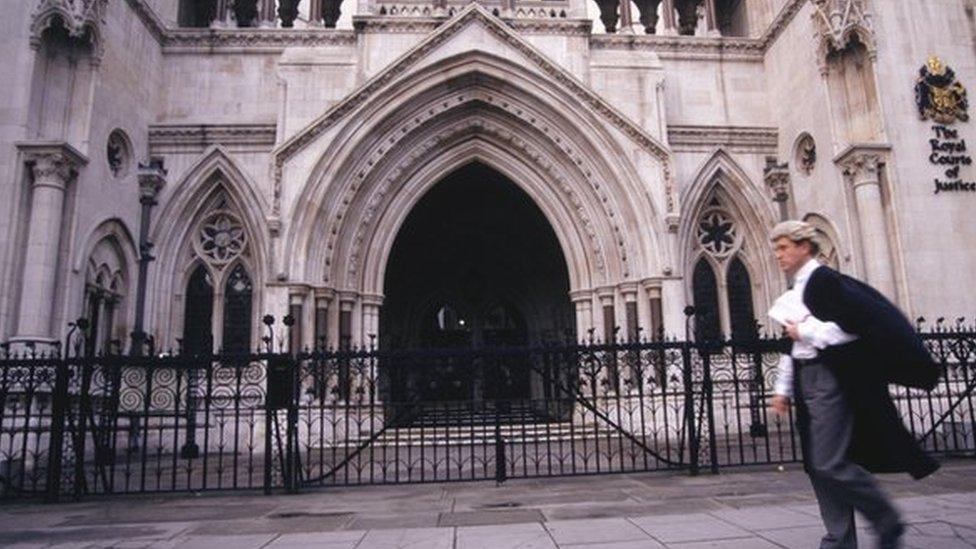Vulnerable witness support down to one full-time worker
- Published

Only one full-time specialist to support children and vulnerable witnesses in the criminal justice system is based in Wales.
Registered Intermediaries (RIs) are used by the police and courts to help witnesses with communication difficulties give evidence in cases.
In January a report found shortages and waits for RIs to be assigned.
But it has emerged there is only one full-time RI in Wales, and three others who work in other roles too.
The Ministry of Justice (MoJ) said a new recruitment campaign would start in Wales shortly.
Linzi-Jayne Margetson and daughter Cariad got quick access to an RI - and it made a big difference
RIs help witnesses, ranging from children with learning needs to elderly people with dementia.
Linzi-Jayne Margetson's daughter Cariad, now 19, has a type of autism and was a witness in a court case two years ago. She needs help with processing questions and handling information and can also get anxious.
"My worry was if she didn't present herself properly," said Ms Margetson. "She struggles in public and with new people. We wanted justice - and she wanted to know what she had witnessed was not going to happen again."
Her RI Robert Thomas got to know her first and helped her relax before Cariad was ready to be interviewed.
"He was absolutely fantastic from the first meeting," Ms Margetson said. "I honestly don't think she would have gone through the process without Rob. He made a huge difference."
At the start of the year there were 135 RIs covering England and Wales - with some having a cross-border caseload, with RIs from the West Midlands and south west of England also being used in Wales.
The victims' commissioner Baroness Newlove said children were waiting an average of four weeks to be matched to RIs so they could give evidence.
Her report said there were an average of 550 requests a month in England and Wales, external, for specialist support to witnesses with issues ranging from dementia, cerebral palsy to autism.

You might be interested in these stories too:
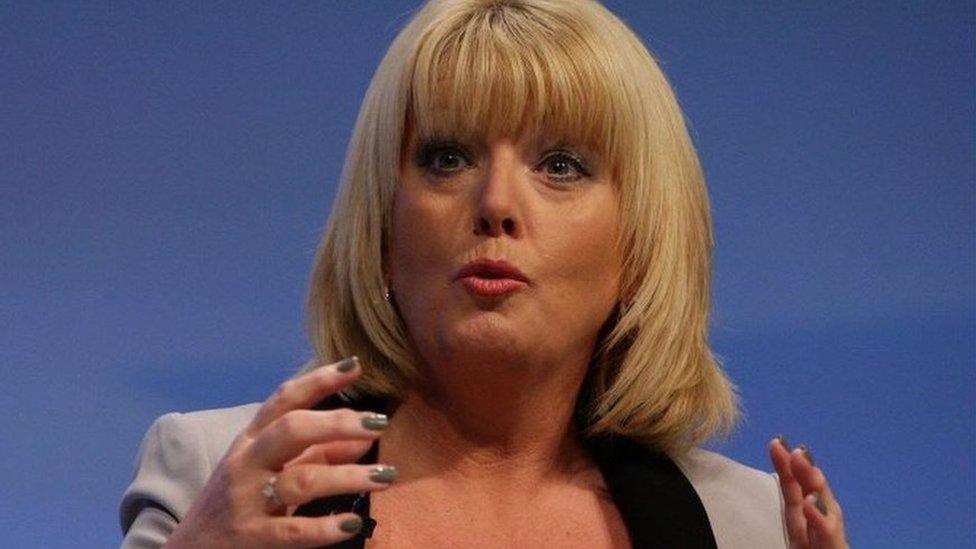
Community and victims' campaigner Baroness Helen Newlove was appointed Victims' Commissioner in 2012
Baroness Newlove said RIs were "invaluable" in providing communication assistance for vulnerable victims and witnesses.
She found:
Particular shortages of available RIs to cover the Gwent and Dyfed-Powys police force areas
Dyfed-Powys also has the sixth highest rate of requests for support of all force areas in England and Wales
North Wales also has issues, particularly due to demands for Welsh-speaking support for victims and witnesses
The police and crime commissioner and chairman of the North Wales Criminal Justice Board have both expressed concerns.
"We know that when a victim is distressed or in a state of trauma they are most comfortable communicating in their first language," said Baroness Newlove.
"Welsh-speaking victims should not be denied this opportunity as it aids communication and their access to justice."
She added: "I believe that equal access to justice must be a primary objective of our justice system.
"An RI gives a voice to the voiceless. I want to be sure that in our justice system, every victim's voice will be heard."
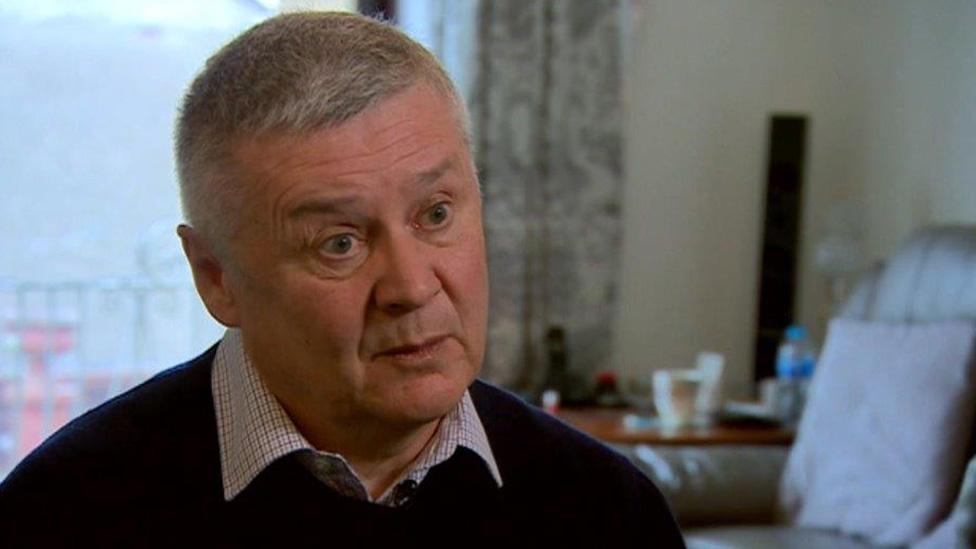
Robert Thomas has worked in the West Midlands and is now based in south Wales
The Margetsons' RI Robert Thomas is the only full-time one in Wales. The former teacher from Penarth, Vale of Glamorgan, covers an area stretching from Dyfed-Powys to Gwent force areas.
He gets about two new cases a week and some can last for months. They range from witnesses from the age of seven upwards to adults with mild learning difficulties.
He is also Welsh-speaking but does not deal with cases in north Wales. The other three based in Wales do not speak Welsh and have other jobs too.
"We enable witnesses to tell their story," he said. "If complex questions are asked that they can't understand, this shatters their confidence and makes their anxiety much worse."
He said if an interview goes ahead without an intermediary there is a risk witnesses cannot tell their whole story, or understand the questions they are being asked or the court process properly.
An MoJ spokesman said registered intermediaries played a "vital role" in helping vulnerable victims and witnesses give evidence which is why it was recruiting 25% more nationally.
"More than 6,500 witnesses were supported last year by registered intermediaries who travel across the country to carry out their work," he said.
- Published17 January 2018
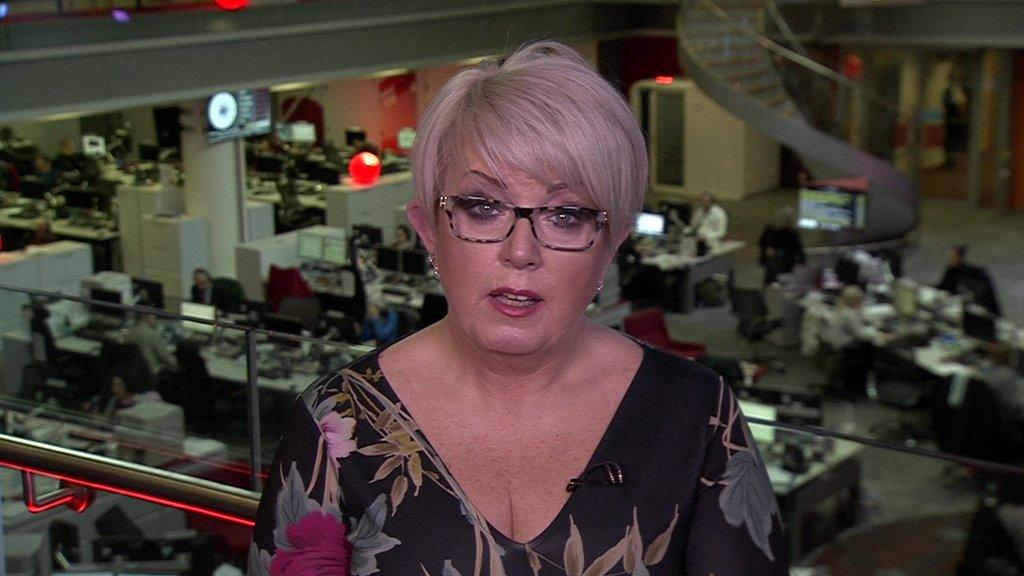
- Published16 May 2018
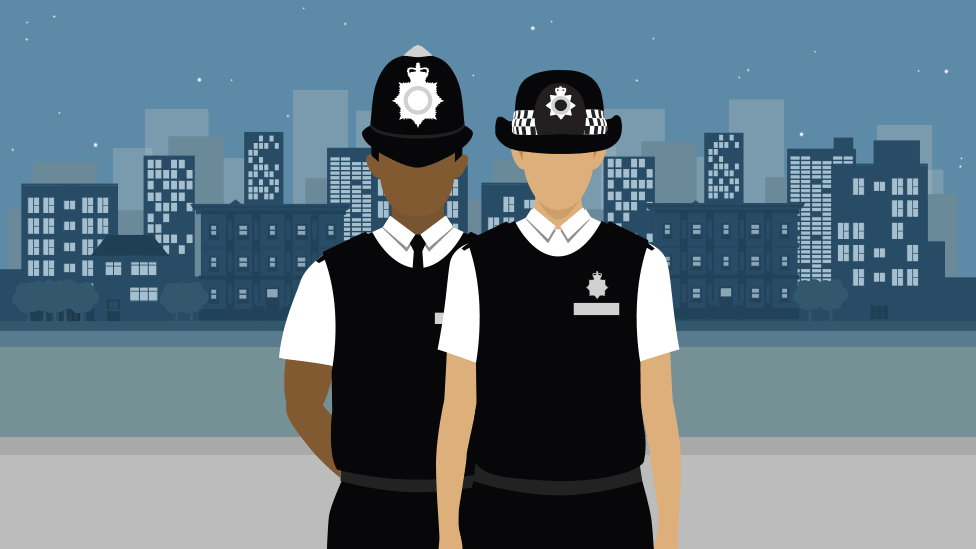
- Published11 May 2018
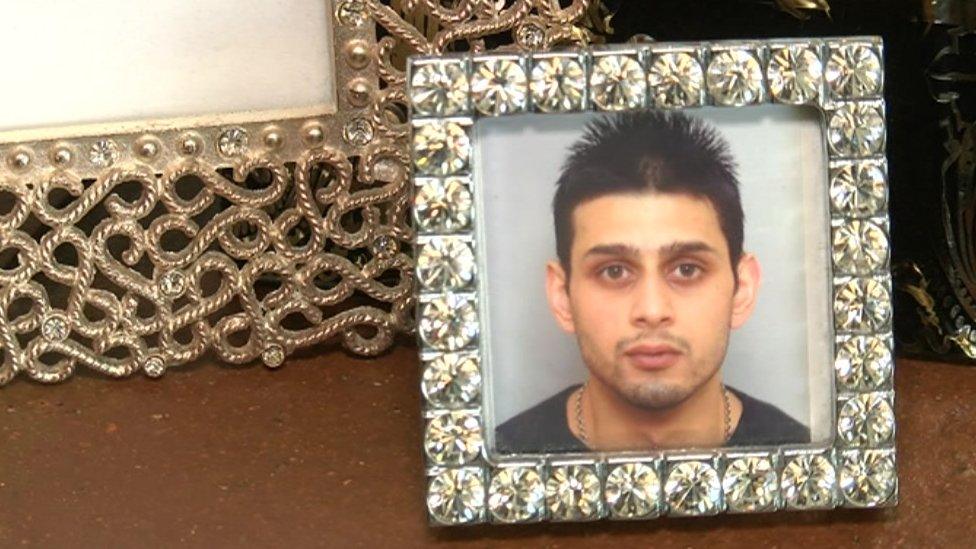
- Published15 September 2016
